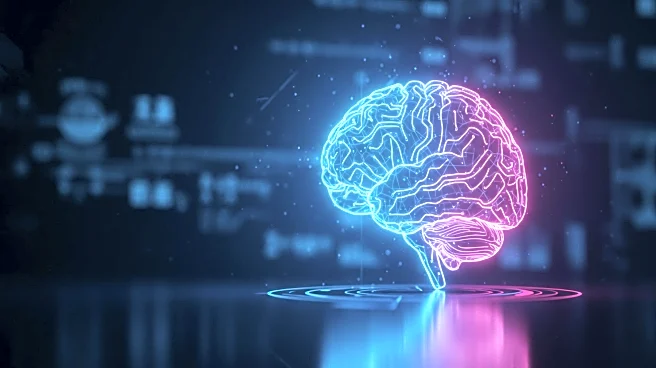What is the story about?
What's Happening?
OpenAI founder Sam Altman has raised concerns about the potential limits of the AI revolution, suggesting the possibility of an AI bubble. A report from MIT indicates that 95% of generative AI pilots at companies are failing, which has contributed to a dip in tech stocks. The AI sector is projected to become a trillion-dollar industry within the next decade, but the slowing progress could have significant economic implications. NPR's Scott Detrow discussed these issues with Cal Newport, a contributing writer for the New Yorker and a computer science professor at Georgetown, highlighting the limitations and challenges facing the AI industry.
Why It's Important?
The concerns raised by Sam Altman and the findings from MIT underscore the challenges facing the AI industry, which is expected to play a crucial role in the future economy. The potential failure of generative AI pilots could impact investment and innovation in the sector, affecting companies that rely on AI technologies for growth. The dip in tech stocks reflects investor apprehension about the industry's ability to deliver on its promises. As AI continues to integrate into various sectors, understanding its limitations is vital for policymakers, businesses, and investors to make informed decisions.
What's Next?
The discussion around the limitations of AI is likely to continue, with stakeholders examining the feasibility and sustainability of AI advancements. Companies may need to reassess their strategies and investments in AI technologies, focusing on realistic applications and outcomes. Policymakers might consider regulations to ensure ethical AI development and deployment. The industry could see increased collaboration between academia and businesses to address the challenges and optimize AI's potential benefits.
Beyond the Headlines
The ethical implications of AI development are significant, as the technology raises questions about privacy, security, and the potential for bias. The industry must navigate these concerns while striving for innovation. Long-term shifts in employment and skill requirements may occur as AI becomes more prevalent, necessitating workforce adaptation and education reform.

















